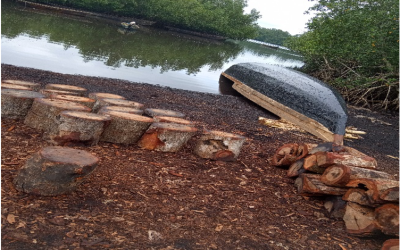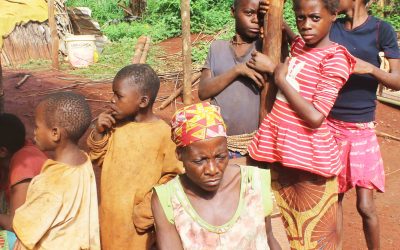
Adjacent communities in this area depend on the mountain for their livelihoods and water supply. The mountain top is a permanent settlement for the Mbororos (one of the indigenous communities in Cameroon) where they also graze their cattle. This has led to overgrazing which has affected some watersheds resulting to inadequate supply of potable water in some adjacent communities.
The absence of potable water in these adjacent communities has been a major cause of waterborne diseases. Reports from the District Hospital of Bangem (Government hospital in the Muanenguba area) show that an average of five persons is hospitalized every month for waterborne diseases. Beyond suffering from waterborne diseases, these impoverished communities have also experienced a reduction in their hard-earned income due to the scarcity of potable water.
According to the resident medical doctor in Bangem, villagers most often resort to unorthodox ways of treating persons infected by waterborne diseases and most patients end up dying because they are brought to the hospital late. There is, therefore, an urgent need to restore the watersheds of Muanenguba. And this can be achieved by building the capacities of community members on best water management practises. Training community members on best agroforestry techniques like forest gardening will restore the degraded land that is now prone to erosion. This would uplift their incomes and consequently improve their livelihoods.
Since the fertile lands in this area have also been subjected to erosion thus, making over exploitation of natural resources inevitable, building the capacities of community members on sustainable methods of harvesting Non-Timber Forest Products (NTFPs) from the mountain will also increase income levels for the impoverished population.
This project will reduce mortality rate in the Muanenguba area by curbing the number of persons who die from waterborne diseases every month. It will also increase household income levels and guarantee a long term protection of natural resources, particularly NTFPs in the Muanenguba area.
Water is life, but when consumed in a precarious manner, it can have devastating effects on human population. The Muanenguba area has been hit by waterborne pandemics which can spread to neighbouring communities if this problem is not addressed immediately. To tackle this urgent problem, 10 persons in the area will be identified and trained on best water catchment management and forest garden practices. This will be done through training workshops that will cost $1500.
Community nurseries will be established to rehabilitate the degraded watersheds in 10 communities in the area at the cost of $700. Trees will be transplanted from community nurseries to the different watersheds at the cost $800.
With $3000 therefore, human lives will be saved and the livelihoods of 10 communities in the Muanenguba area uplifted. Be part of history in the lives of Muanenguba indigenes.


